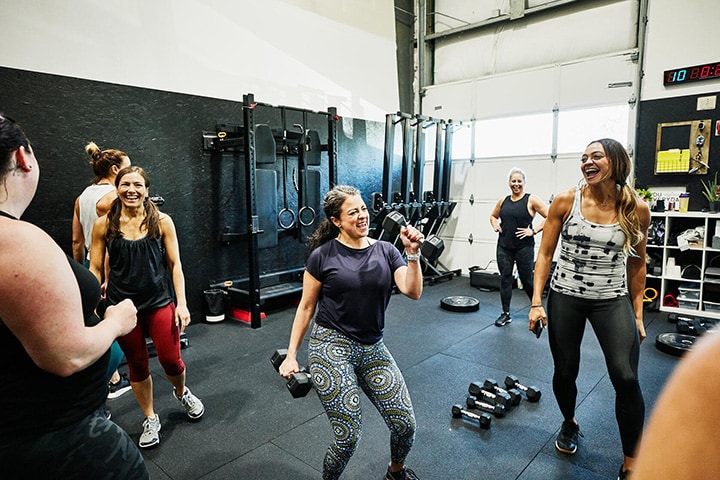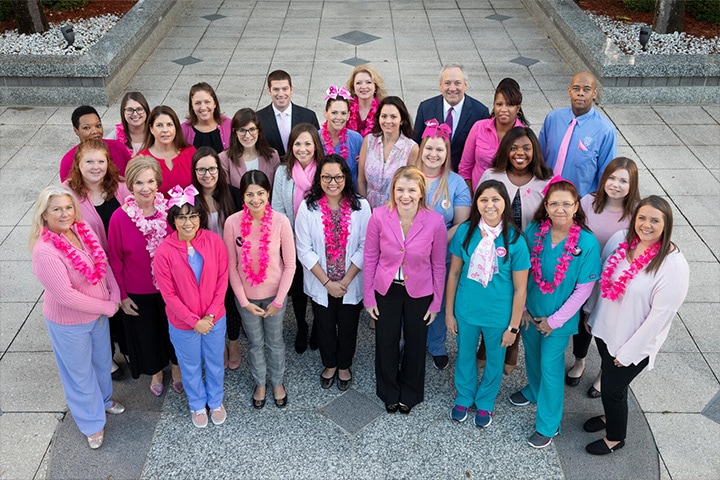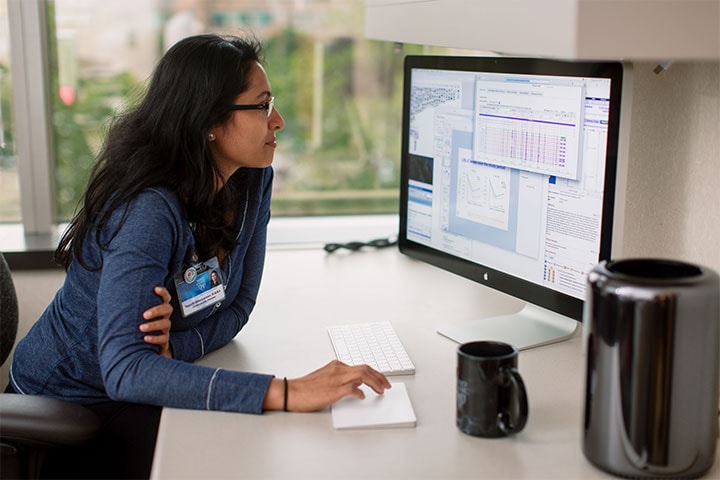Curriculum
Clinical training
Your training in the Transplant Hepatology Fellowship includes broad exposure to common and unusual problems in the fields of hepatology and liver transplantation, and it guides you to develop the clinical skills necessary to evaluate and manage inpatients and outpatients with these conditions. You become skilled at liver biopsy and interpretation of hepatobiliary imaging studies. Through your patient care experiences and educational conferences, you rapidly expand your knowledge base in hepatology and liver transplantation.
During your fellowship, you work on a one-to-one basis with faculty to provide patient care in ambulatory and inpatient settings. The favorable faculty ratio, large and diverse patient population, and state-of-the-art diagnostic, therapeutic and research facilities combine to create an ideal educational setting. The "Mayo Clinic way" of graduate medical education ensures you have the finest teaching and the broadest patient care experience possible during a busy, hands-on fellowship.
In the outpatient clinic, you follow a group of patients over the duration of your training program to gain an understanding of the long-term course of diseases and of liver transplant patients. Your clinical activities are designed for their educational value to you.
The primary training site is Mayo Clinic's campus in Jacksonville, Florida. Elective rotations at Mayo Clinic's campus in Rochester, Minnesota, and Nemours Children's Specialty Care in Jacksonville are also available.
Rotation schedule
Schedules for fellows vary but include:
| Rotation | Length |
|---|---|
| Outpatient liver transplant clinic | 5 months |
| Inpatient liver transplantation service | 4 months |
| Electives (half day) | 3 months |
| Research (half day) | 3 months |
Rotation descriptions
Liver transplantation
The liver transplantation program at Mayo Clinic's Florida campus began in 1998, but represents an expansion and continuation of the internationally recognized Mayo Clinic liver transplantation program. The program is extremely busy and is expected to perform approximately 150 liver transplants a year.
The liver transplant service and clinic are very active and provide exposure to patients with chronic liver disease who are being evaluated for liver transplantation, as well as patients at all stages after transplantation.
You become skilled in the management of patients with chronic hepatic insufficiency and fulminant hepatic failure. You develop expertise in the management of all types of post-transplant complications, including rejection, biliary complications and immunosuppression complications.
This training meets United Network for Organ Sharing (UNOS) criteria for certification as a liver transplant physician for fellows who complete a gastroenterology fellowship.
Hepatobiliary clinic
During this rotation, you evaluate and manage patients with a wide variety of liver and biliary diseases, including cholestatic diseases, viral hepatitis, alcoholic liver disease, autoimmune hepatitis and hepatobiliary neoplasms. You develop skills in managing complications of chronic liver disease, including portal hypertension, pruritis and encephalopathy.
Didactic training
Clinical conferences, seminars, small discussion groups, journal clubs and one-on-one instruction are all integral parts of the Transplant Hepatology Fellowship.
There is an active schedule of teaching conferences relevant to hepatology and liver transplantation. The goal of these conferences is to help you develop the knowledge and skills necessary to function as an effective consultant in hepatology and liver transplantation in a clinical academic setting.
During a series of Hepatology Core Conferences, faculty members provide a didactic review of important topics in hepatology and liver transplantation. GI Basic Science Conferences cover important areas of hepatic physiology. Visiting professors give state-of-the-art talks and review cases with fellows.
Other regular conferences provide teaching in the format of case discussions and literature reviews. These include:
- GI Medical-Surgical Conference
- Hepatobiliary Case Conference
- Journal Club
- Liver Biopsy Conference
- GI Research Conference
- Liver Transplant Selection Conference
There are other conferences in the Division of Gastroenterology and Hepatology, as well as Mayo-wide conferences such as Grand Rounds and Clinical-Pathologic Conferences. Other divisions and training programs at Mayo Clinic's Florida campus also have active conference schedules that include topics of interest.
Research training
Participation in clinical research is an important part of the Transplant Hepatology Fellowship. Fellows are expected to participate in clinical research projects with a faculty mentor. A Clinical Research Center provides facilities, equipment and research nurse assistants to support your clinical research projects.
There are opportunities to collaborate with basic scientists at Mayo's Birdsall Research Building in Jacksonville or with researchers at Mayo Clinic's campuses in Rochester, Minnesota, and Phoenix/Scottsdale, Arizona. The information generated during this year forms the basis for presentations at national meetings and in publications.
A three-month half-day block of time is allocated for analyzing data, preparing presentations and writing manuscripts.
Call frequency
Your call schedule varies by individual rotation. Mayo Clinic follows the recommendations of the Accreditation Council for Graduate Medical Education.
Teaching opportunities
We help you develop your teaching skills and your ability to give effective oral presentations. You participate in the formal and informal teaching of colleagues, internal medicine and family medicine residents, medical students, and nursing staff. You may have the opportunity to make presentations at national continuing medical education meetings sponsored by our division.
Cardiac life support certification
Certification in Basic Life Support (BLS) and Advanced Cardiovascular Life Support (ACLS) is required for all Mayo Clinic residents and fellows. ACLS courses are held during the last week of June, just before the start of the academic year. The ACLS course is also offered evenings every three months during the year to facilitate recertification.
Moonlighting
Moonlighting is permitted for licensed residents and fellows beyond the PGY-1 level. Moonlighting activities may be scheduled during those times when you are assigned to elective or outpatient rotations.
Career development
You meet periodically with the program director, your research mentor and other faculty members to discuss your career goals. Mayo Clinic recruits many of its staff physicians from its own subspecialty training programs, so when you successfully complete the Transplant Hepatology Fellowship, job opportunities may be available at Mayo Clinic's group practices in Florida, Minnesota or Arizona.
Evaluation
To ensure that you acquire adequate knowledge and develop your technical skills to expert levels, your performance is monitored carefully during your fellowship. You are evaluated formally by supervising faculty members after each rotation, and you meet with the program director on a regular basis to review your evaluations.
You have the opportunity to provide critiques of your training experience and faculty members' performance. During meetings with the program director, you are able to discuss ways that we may improve your training experience.
Work/life balance
Fellows in the Renal Transplant Fellowship program have access to all that Mayo Clinic and Jacksonville, Florida, have to offer. We'll support you both inside and outside of Mayo Clinic's campus to promote wellness and ensure your work/life balance.
- Fitness centers
- Groups on campus
- Well-being
Fitness centers
 Mayo Clinic residents or fellows can experience 24/7 free access to the Bill Hewitt Employee Wellness Center — opened in the summer of 2024 and spans 6,700 square feet with modern cardio machines, weight machines, free weights, a studio for live classes, and includes showers and locker rooms for convenience.
Mayo Clinic residents or fellows can experience 24/7 free access to the Bill Hewitt Employee Wellness Center — opened in the summer of 2024 and spans 6,700 square feet with modern cardio machines, weight machines, free weights, a studio for live classes, and includes showers and locker rooms for convenience.
Additionally, residents or fellows at our three campuses get discounted membership fees to area gyms. In Jacksonville, Florida, residents and fellows can obtain an exclusive discount with the YMCA (several locations).
Groups on campus

Opportunities to join a variety of groups on campus provide regular social activities and can help enhance your training while connecting with a broad group of peers.
Trainees will have the opportunity to join a Mayo Employee Resource Group (MERG) at any time during their training program. Mayo Employee Resource Groups (MERGs) are employee-led affinity groups to promote belonging, increase cultural awareness, and foster an environment of respect and inclusivity. Any Mayo Clinic employee can join a group of interest and choose their level of involvement
Well-being
 The Office of Academic Support and Well-Being provides resources to promote academic, emotional, social, cognitive, financial, and physical well-being. Career and academic services include academic advising, peer tutoring, and accommodations for learners with disabilities or health conditions. Mental health services, counseling, interview practice, and a variety of enrichment sessions on topics like budgeting, resiliency, and stress and burn-out are also available through the Academic Support and Well-Being office.
The Office of Academic Support and Well-Being provides resources to promote academic, emotional, social, cognitive, financial, and physical well-being. Career and academic services include academic advising, peer tutoring, and accommodations for learners with disabilities or health conditions. Mental health services, counseling, interview practice, and a variety of enrichment sessions on topics like budgeting, resiliency, and stress and burn-out are also available through the Academic Support and Well-Being office.